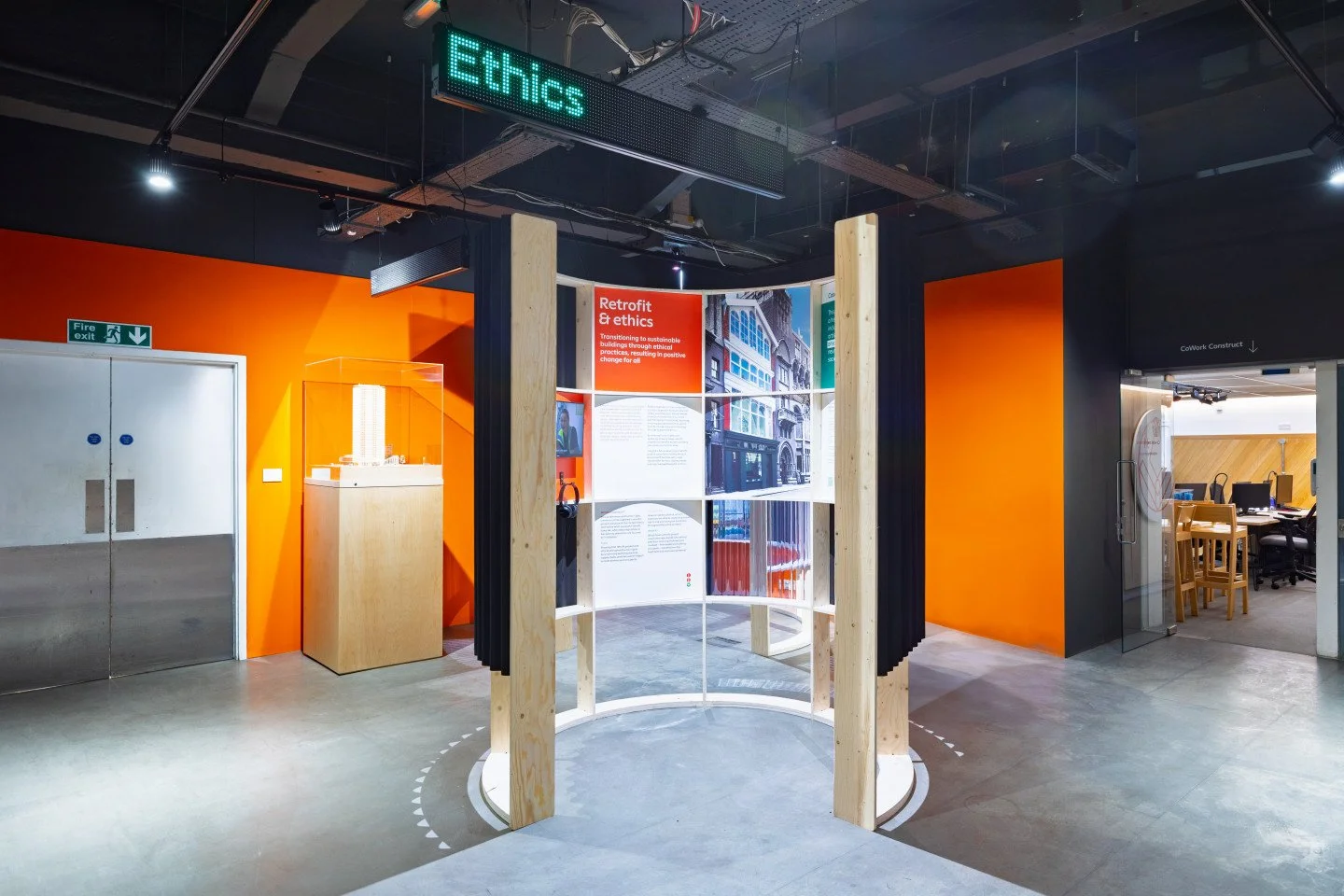Rethinking Architectural Practice: A New Way of Working
What does it mean to practice architecture in the UK today?
New-works co-founder was a guest on the Retrofit Meets: Ethics panel, an event hosted by The Building Centre and National Retrofit Hub
After 13 years running the all-services practice TDO, and now a year and a half with our new studio New-works, my co-founder Tom Lewith and I have been grappling with this question. Architecture sits at the intersection of some of society’s biggest challenges, and the way we practice has profound ethical implications for our profession, our communities, and our planet.
Confronting Systemic Failures
The Grenfell Tower tragedy in 2017 marked a turning point. It exposed deep flaws in construction, regulation, and procurement, forcing architects to reconsider our responsibilities. Grenfell was a retrofit project—raising uncomfortable questions about how risks and benefits are balanced in our industry. For us, it cemented a belief in a Retrofit Firstapproach: adapting and improving what exists rather than demolishing. It is often more sustainable, sometimes more cost-effective, but it demands time, skill, and care—qualities that must be protected if we are to work ethically.
The Pressures on Practice
Today’s architects face multiple, intersecting crises:
The Climate Emergency: The built environment produces a quarter of UK carbon emissions (40% including construction). With 80% of the buildings we’ll use in 2050 already built, retrofitting isn’t optional—it’s essential. Yet despite professional advocacy, political commitment remains inconsistent.
The Cost of Living & AI: Since the RIBA Fee Scale was abolished in 1992, architects’ incomes have stagnated while the wider construction industry has flourished. Rising living costs, student debt, and low pay push many out of the profession, just as AI is reshaping the nature of design work. The question now is whether AI can support rather than replace architects, helping us work more effectively without burning out.
The Mental Health Crisis: Long hours, financial strain, and entrenched cultural expectations have created alarming rates of poor mental health among architects. Without a profession that is healthy and inclusive, we risk irrelevance.
A New Way of Working
At New-works, we wanted to build a different model of practice—one rooted in wellbeing, sustainability, and collaboration.
Wellbeing at the Centre: We’ve structured our studio day around physical and mental health: exercise in the morning, focused work in the middle of the day, collaboration in the afternoons, and reflection at the end. Protecting time and energy leads to better design—and happier teams.
Sustainable Business for Sustainable Buildings: We reject unpaid “spec work” and undercutting fees, instead charging fairly for the value we bring. We’ve aligned our pay with NHS resident doctors to make the profession financially sustainable. We collaborate openly with other practices and embrace AI as a tool to reduce stress and improve efficiency.
Building for Communities: Architecture is about more than buildings—it’s about people and places. Our retrofit project at Great Suffolk Yard shows how adapting existing structures can strengthen community identity, earning recognition in the Architects’ Journal and a Retrofit & Reuse Award nomination.
Looking Forward
The crises we face—climate change, inequality, AI, and mental health—are daunting. But they are also an invitation. Just as Grenfell demanded a reckoning with safety, today’s challenges demand we reshape architecture into a profession that is more humane, sustainable, and ethical.
At New-works, our belief is simple: if we care for individual architects through honest collaboration and sustainable practices, we can create joyful, resilient studios—and help build thriving communities for the future.

